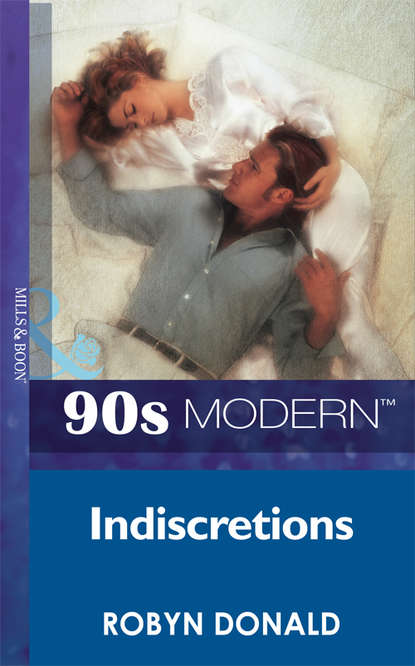По всем вопросам обращайтесь на: info@litportal.ru
(©) 2003-2024.
✖
Indiscretions
Автор
Год написания книги
2018
Настройки чтения
Размер шрифта
Высота строк
Поля
“Hey, how much do you know?”
“I can say ’good morning’ and ’good evening,’ and I think I might have a handle on ’goodbye.’ Beyond that it’s a mystery.”
She left the room to laughter and went swiftly up the gracious sweeping staircase, trailing her fingers over the elegant curves of the banister, worn smooth by thousands of hands over the years. There was nothing in New Zealand to match this, she thought with enormous contentment. Nothing at all.
The Sea Islands had waxed rich for generations, first on indigo, then on cotton, and always on the efforts of slaves. This glorious building was the original Jermain plantation house, its white pillars like an evocation of the Old South. After the Civil War the family and the plantation had fallen on hard times, until Liz Jermain’s grandmother scraped up the money to join the two flanking buildings to the main house and transform it into a hotel.
Outside room 27 Mariel took a deep breath and straightened her shoulders before knocking. The door opened immediately, and yes, it was the man from the bar.
His eyes, so pale a green they were almost colorless—except for glints of gold blazing through a matrix of jadeheld hers for a moment before the professional politeness in his expression changed to cold aloofness. But he couldn’t prevent a flicker of elemental response.
Shockingly, an inchoate flutter of anticipation in Mariel’s stomach burned suddenly into excitement.
“Good afternoon,” she said, her formal smile hiding a perilously balanced composure. “You want a document translated, I believe.”
His lashes half covered his eyes, intensifying that disturbing glitter. “Yes, from English to Japanese. Can you do it?”
“Certainly, sir.”
“Here,” he said curtly, “in this room.”
She did not want to sit at the charming desk beside the magnificent four-poster bed and work while he watched her, and she certainly didn’t care for his implied mistrust. With out thinking, she shook her head. “I use a computer”
“A portable, surely?”
Lord, but her wits had gone begging. “Yes,” she said woodenly. “But—”
“This is confidential, Ms…”
The keen eyes had missed nothing, certainly not the absence of rings on her long slender fingers. “Browning,” she said stiffly.
“How do you do, Ms. Browning. My name is Nicholas Lee.”
Automatically she took the hand he held out. Although his grip was firm it wasn’t painful, but an instant sizzle of electricity made her draw a sharp breath into her lungs. Without thinking, she jerked her hand away.
Damn, the man was dynamite, and he had to know it.
However, nothing of that recognition showed in the hard, handsome face nor in the green-gold eyes, although some foolish, hidden part of her preened at the quick tightening of his mouth and the way his eyes narrowed even further, giving him a hooded, menacing look.
He said smoothly, “I’m afraid I must insist that you work here, Ms. Browning.” He added with an undertone of mockery that whipped across her confidence, “If you wish, I can leave the door open.”
Color heated the soft ivory of her skin. He saw too much. “That won’t be necessary, sir,” she said, striving for the right touch of amusement, the note of casual sophistication that would put him in his place. “I’ll get my computer.”
“You understand that I’ll expect you to translate into Japanese symbols?”
“My computer is quite capable of doing that, and so, Mr. Lee, am I,” she said in what she hoped was a repressive tone.
When she’d arrived back he handed her a letter from a Japanese businessman, one of the country’s most forward-looking industrialists.
“This is the letter I’ve answered,” he said. “You might find it helpful to read it first so that you know what I’m talking about.”
Apparently he had an interest in some new invention. Well versed as she was in the subtleties of Japanese business language, she realized that the industrialist had written to him as an equal.
So he had power.
Well, she didn’t need a letter to tell her that. He reeked of it, she thought snidely; power and the personality to make use of it oozed from every pore of his tall, graceful body.
Doing her best to ignore his potent male presence, she got to work. His name, she realized, looking at the slashing black signature, wasn’t Lee; it was Leigh.
It figured. She wasn’t surprised that his name should have the more complex spelling; he was complex. Not to mention prejudiced, she thought with irritation. He didn’t know her, and yet he had presumed to judge her, and that before she’d been stupid enough to issue her own version of a sexual challenge.
Perhaps he had something against tall redheads who drank mineral water in bars.
Fortunately, because he was having an unsettling effect on her nerves, she had long ago perfected the skill of complete concentration. She needed it now. He’d given her a fairly complicated document which took some time to translate, but eventually she was able to say, “Here you are, sir, it’s finished,” and lay the three sheets down on the gleaming desk.
Clearly he shared her gift of losing herself in work, because she had to speak twice before he looked up from the sheaf of papers he was studying, black brows knotting as those disturbing eyes focused on her face.
“Read it to me, please. In Japanese.”
Too well trained to ask why, she obeyed, her voice slipping through the liquid syllables with confidence.
“You have an excellent accent,” he observed when she’d finished. “You must have learned to speak the language as a child.”
Mariel returned impersonally, “Yes, sir.”
“I see,” he said, a dry note infusing his voice.
She asked, “When did you learn?”
And could have kicked herself. Normally she’d have stopped at a simple thank-you; natural caution should have overridden an unsuspected desire to learn more about him.
Although his brows drew together above the blade of his nose, he said mildly enough, “In my teens. I can speak the language fluently, and to a certain extent read it, but I can’t write it and I’ll never lose my accent.”
Shrewdly Mariel surmised that this would always be a source of irritation to him. He would demand perfection from himself, as well as others—the very worst sort of man, totally impossible to live with.
She wasn’t going to have to live with him. However, she was going to have to work with him, and that meant that from now on she was going to be resolutely, professionally, implacably aloof.
With a touch of brusqueness he resumed speaking. “Thank you, you’ve done a good job. I’ll order tea. I assume you are a tea drinker? Most New Zealanders are, especially at this time of the afternoon.”
No, he didn’t miss anything. As well as keen eyes, he had keen ears. Although her American colleagues invariably picked up the trace of an antipodean accent in her speech, any New Zealanders she’d met during the past few years usually assumed she was American.
Mariel looked at her watch. “I’m sorry, sir,” she said without expression, “but I need to be free when the other members of the delegation arrive.” She gave him a businesslike smile, carefully not quite meeting his eyes, and as she got to her feet said in the same collected tone, “It was kind of you to think of it. Thank you.”
He waited until she had packed up her computer and printer and was halfway to the door before saying, “I am not kind, Ms. Browning. I do, however, appreciate efficiency and intelligence.”
Delivered in a cool, inflexible tone, the words sounded almost like a warning.
MARIEL SAW Nicholas Leigh again that night at the inaugural dinner. According to Liz Jermain, the purpose of the conference was to conduct a high-level but informal discussion of trade patterns.











